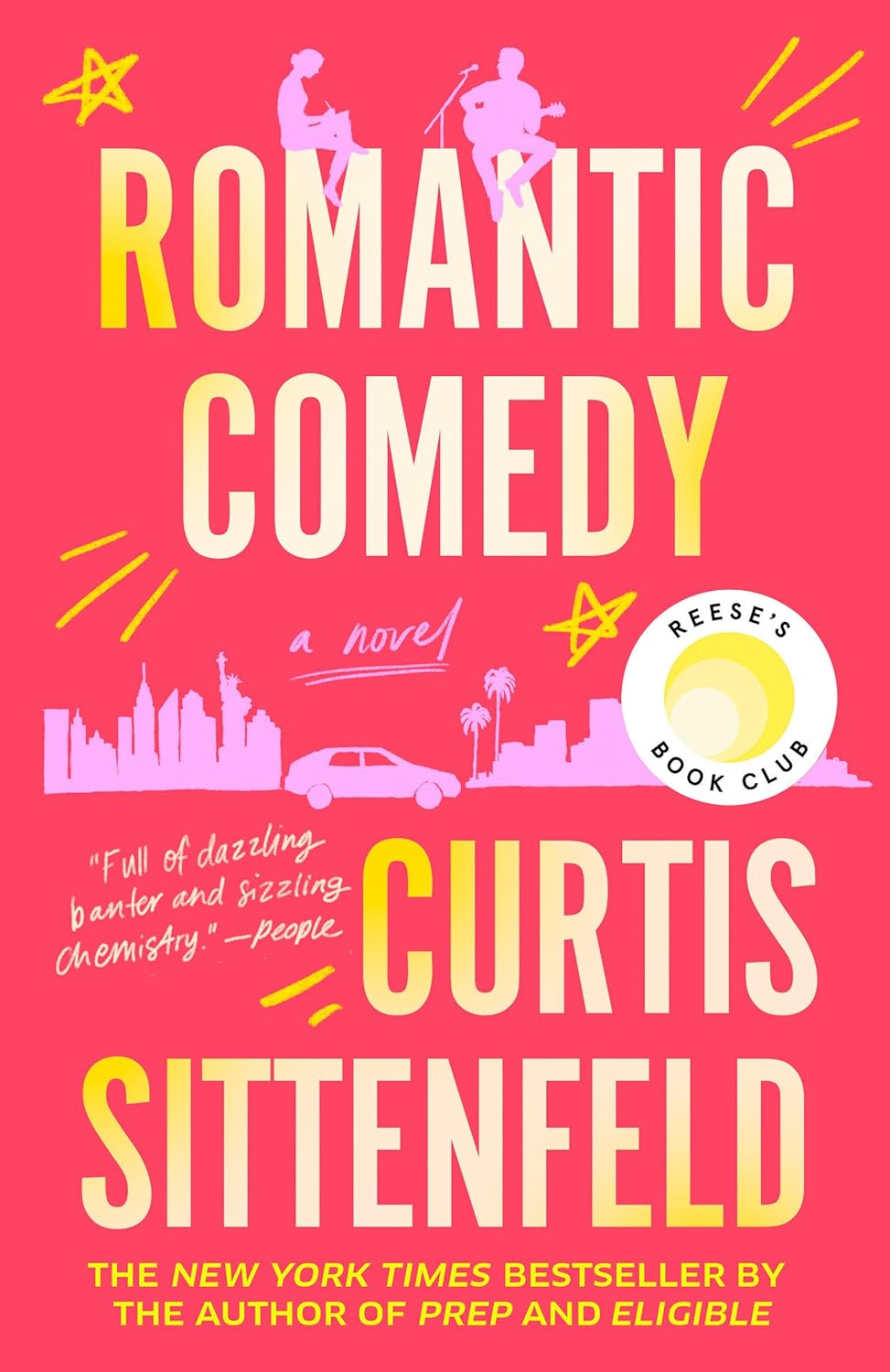Summary | Excerpt | Reading Guide | Discuss | Reviews | Readalikes | Genres & Themes | Author Bio

A Novel
by Curtis Sittenfeld
Chapter 1
April 2018
Weekly Schedule for The Night Owls
Monday 1 p.m. pitch meeting with guest host
Tuesday 5 p.m. start of all-night writing session
Wednesday 12 p.m. deadline for submitted sketches
Wednesday 3 p.m. table read of submitted sketches
Wednesday 9 p.m. preliminary show lineup posted internally
Wednesday night–Saturday morning rehearsals; scripts revised; sets built; special effects designed; hair, makeup, and costumes chosen and created; pre-tapes shot
Saturday 1 p.m. run-through of show
Saturday 8 p.m. dress rehearsal before a live audience
Saturday 11:30 p.m. live show before a new audience
Sunday 1:30 a.m. first after-party
Monday, 1:10 p.m.
For the meeting that marked the official start of that week's show, I planned to pitch two sketches. But I had three ideas—you could write and submit more but pitch only two—so I'd play by ear which ones I went with, depending on how the guest host reacted to the pitches preceding mine. About forty writers, cast members, and producers were crammed into the seventeenth-floor office of the show's creator and executive director, Nigel Petersen. Nigel's seventeenth-floor office—not to be confused with his office on the eighth floor, adjacent to the studio where the show was filmed—was both well-appointed and never intended as a meeting place for anywhere close to forty people. This meant that Nigel sat behind his desk, the host sat in a leather armchair, a few lucky staffers nabbed a place on the sole couch, and everyone else leaned against the wall or sat on the floor.
Nigel started by introducing the host, who, as happened about once per season, was also that week's musical guest. Noah Brewster had twice in the past been the musical guest, but this was his first time hosting. He was a cheesily handsome, extremely successful singer-songwriter who specialized in cloying pop music and was known for dating models in their early twenties. Though he looked like a surfer—piercing blue eyes, shaggy blond hair and stubble, a big toothy grin, and a jacked body—I'd learned by reading the host bio we were emailed each Monday morning that he'd grown up in a suburb of Washington, D.C. He was thirty-six, the same age I was, and had been famous ever since releasing the hit "Making Love in July" more than fifteen years before, when I was in college. "Making Love in July" was a paean to respectfully taking the virginity of a long-haired girl with "glowy skin," "a pouty mouth," and "raspberry nipples," and it was one of those songs that had for a year played so often on the radio that, in spite of finding it execrable, I accidentally knew all the words. In the time since then, Noah Brewster had won many awards and sold more than twenty million albums, a figure I also had learned from his host bio. It was not a coincidence that his tenth album was being released the following week; hosts, musical guests, and the combinations therein were usually either celebrating newfound fame or promoting imminent work.
After Nigel introduced him, Noah Brewster looked around the room and said, "Thanks for letting a musician crash the comedy party. Hosting TNO has been a lifelong dream, ever since I was a middle school misfit sneaking down to the basement to watch after my parents went to bed." He smiled his big smile at us, and I wondered if his teeth were real or veneers. After nine years at TNO, I was as accustomed as one could be to interacting with high-wattage celebrities, though it often was surprising to discover who was even better-looking in person (most of them), who was an asshole (not many, but definitely a few), who was shockingly vacuous (the lead from a popular police procedural stood out), and who you wished would stay on the show forever because they were so great in the sketches and also just so fun to hang out with in the middle of the night.
Excerpted from Romantic Comedy by Curtis Sittenfeld. Copyright © 2023 by Curtis Sittenfeld. Excerpted by permission of Random House. All rights reserved. No part of this excerpt may be reproduced or reprinted without permission in writing from the publisher.




I am what the librarians have made me with a little assistance from a professor of Greek and a few poets
Click Here to find out who said this, as well as discovering other famous literary quotes!
Your guide toexceptional books
BookBrowse seeks out and recommends the best in contemporary fiction and nonfiction—books that not only engage and entertain but also deepen our understanding of ourselves and the world around us.